People around the world have made health a “proactive priority,” most important to live a longer, healthier life, to avoid preventable diseases, to protect against disease, and to look and feel healthier, according to NielsenIQ’s latest health and wellness report.
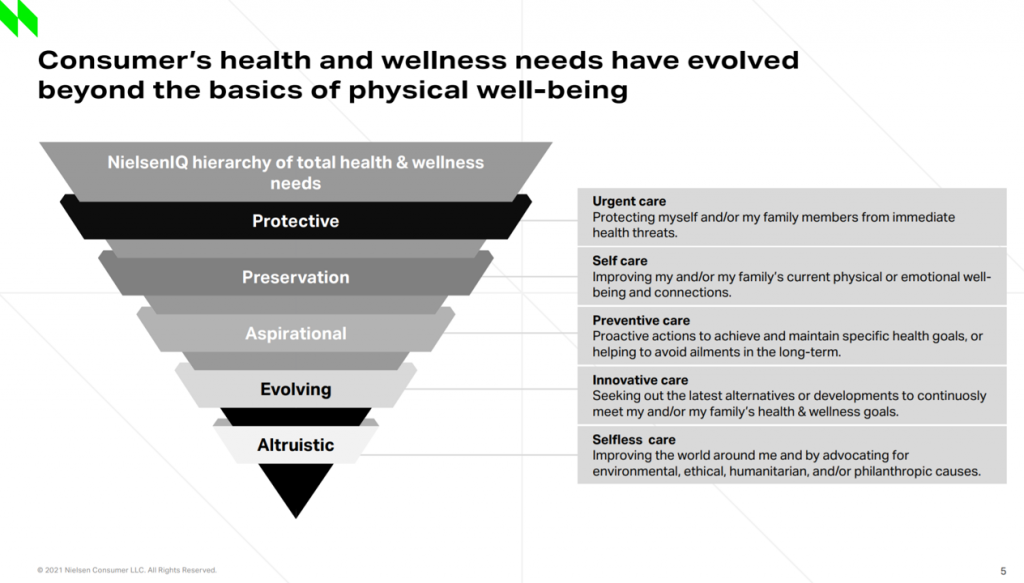 As the triangle here illustrates, NielsenIQ has turned Maslow’s Hierarchy of Needs upside down, shifting protective and physical needs to the top rung and altruistic — the “me-to-we” ethos — at the base.
As the triangle here illustrates, NielsenIQ has turned Maslow’s Hierarchy of Needs upside down, shifting protective and physical needs to the top rung and altruistic — the “me-to-we” ethos — at the base.
Note the translations of these needs, on the ride, into the “care” flows — moving from urgent care down to self-care, preventive care, innovative care, and selfless care — the “we”-care for the collective, reflecting a sort of ESG for the individual.
These goals are re-shaping how consumers want to interact with companies and organizations in their daily lives. There is a baseline consumer expectation, NielsenIQ calls out, for clean, simple, sustainable goods. We are more “conscious consumers,” expecting both the usual, traditional product efficacy — whether for household cleaning products or over-the-counter medicines — and at the same time, the dual expectation in NielsenIQ’s words to deliver on the health of the planet along with the health of themselves.
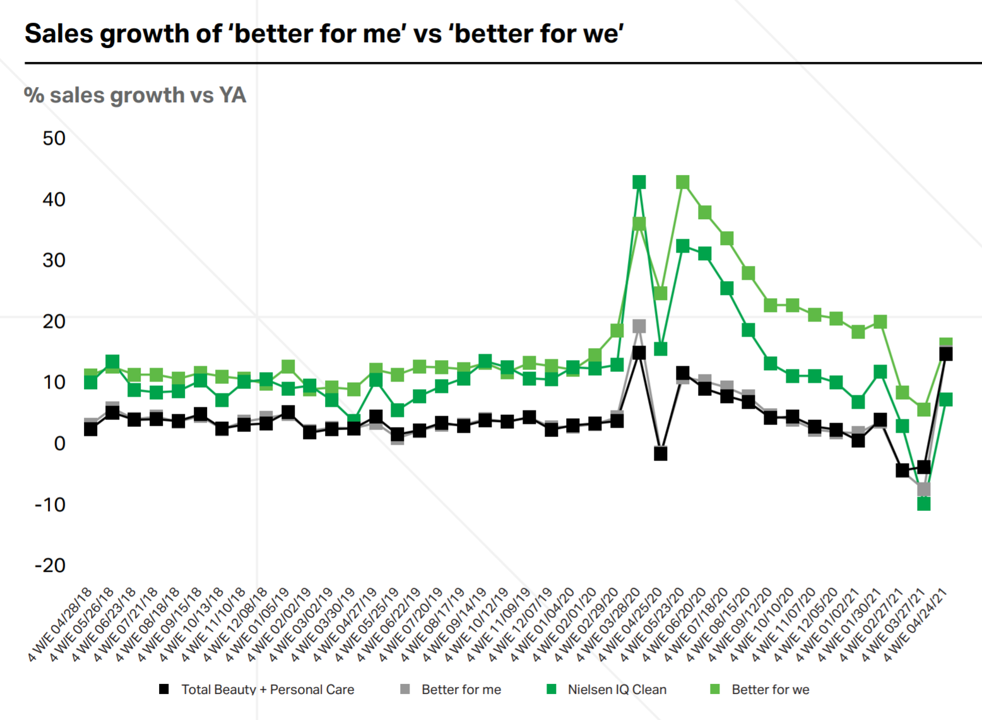 Based on these dual objectives, health and wellness are now a shared priority and responsibility between consumers, companies, and governments, NielsenIQ realizes.
Based on these dual objectives, health and wellness are now a shared priority and responsibility between consumers, companies, and governments, NielsenIQ realizes.
For example:
- 72% of consumers believe that companies have a big role to play in the availability and access of healthy food for all, with a growing appreciation for self-care using food-as-medicine (up 13% in the U.S. since 2019)
- 70% of companies are obliged to ensure healthy products are less expensive than processed or unhealthy product choices
- 77% of people expect labels to be more specific and transparency.
This line chart illustrates the spiking of consumers’ “better for we” perspective over time, increasing since the emergence of the COVID-19 pandemic.
The altruistic need is inspiring several microcultures which NielsenIQ describes as:
- Aging with dignity, with independence and good health
- Mental health advocacy, looking to end the stigma around mental health especially in workplace culture and health care
- Social bonds, bolstering existing connections and creating new ones to boost individual and collective well-being
- Healthy eating for all, promoting nutrition education and food access and security, and
- Sustainable wellness, connecting living a sustainable lifestyle with the mental and physical health of society, health, and planet.
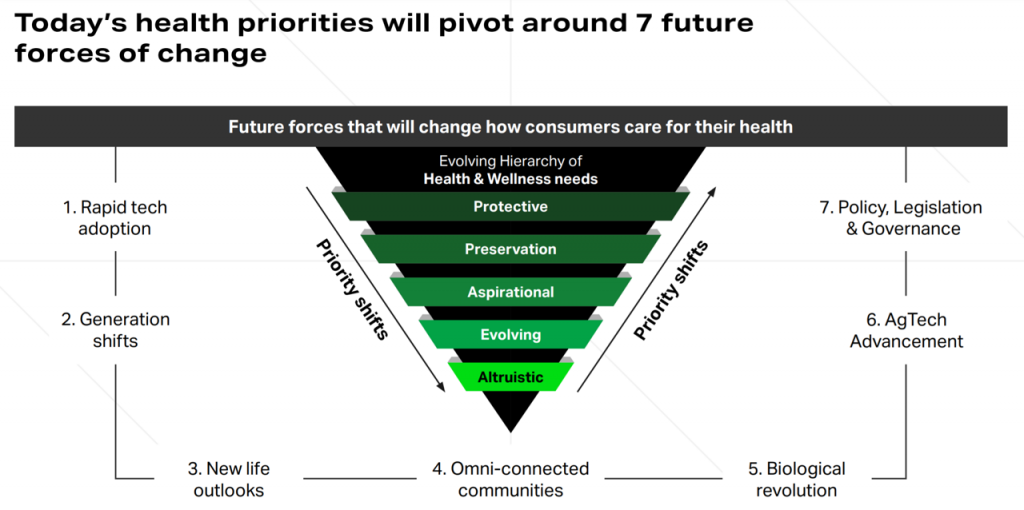
Health Populi’s Hot Points: The last inverted pyramid spells out seven driving forces that are shaping the new consumer ethos around self-care and better-for-we, collecting well-being.
These include:
- Rapid technology adoption
- Generational shifts
- New outlooks on life
- Omni-connected communities (and -channels)
- Biological revolution
- AgTech advancement, and
- Policy, legislation, and governance.
I looked at the latest 2022 Edelman Trust Barometer earlier this week, observing how consumers around the world are looking for solutions from the private sector — not so much from governments, who mainstream citizens feel have let them down in the past several years.
The NielsenIQ construct here smartly observes, in the #7 driving force that will change how consumes care for their health, Policy, Legislation, & Governance.
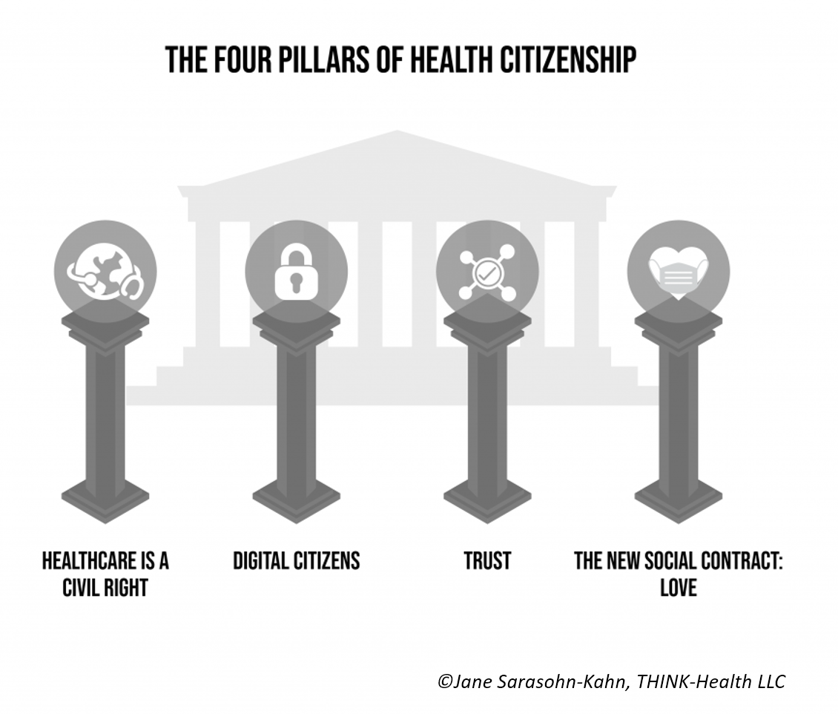 While we can wish for the commercial organizations with whom we shop and interact to help feed our health, the likes of CVS Health, Walmart, Walgreens, Kroger, Fitbit, Google, Amazon, and the growing retail health ecosystem, can only do so much in the context of public policy, environmental health/climate change, and demographics.
While we can wish for the commercial organizations with whom we shop and interact to help feed our health, the likes of CVS Health, Walmart, Walgreens, Kroger, Fitbit, Google, Amazon, and the growing retail health ecosystem, can only do so much in the context of public policy, environmental health/climate change, and demographics.
ESG is necessary, but not sufficient, to improve public health. The “public” in public health depends and relies on governments to promulgate and support public policies that bake in health across all policies: environment, finance (such as income equality, jobs policy, and fair wages), agriculture and food systems, transportation, housing, justice, and indeed, healthcare.
This is why I have been speaking so often about health citizenship being healthcare consuming….that citizenship embodies the concept of “better for we” that NielsenIQ presents here in this new report on health and well-being. That health citizenship means voting (one person, one vote, in fair and democratic elections), privacy coverage and digital access, trust, and a new social contract of loving-they-neighbor.
Kudos to NielsenIQ for this important report that speaks to consumers’ growing embrace of health citizenship.


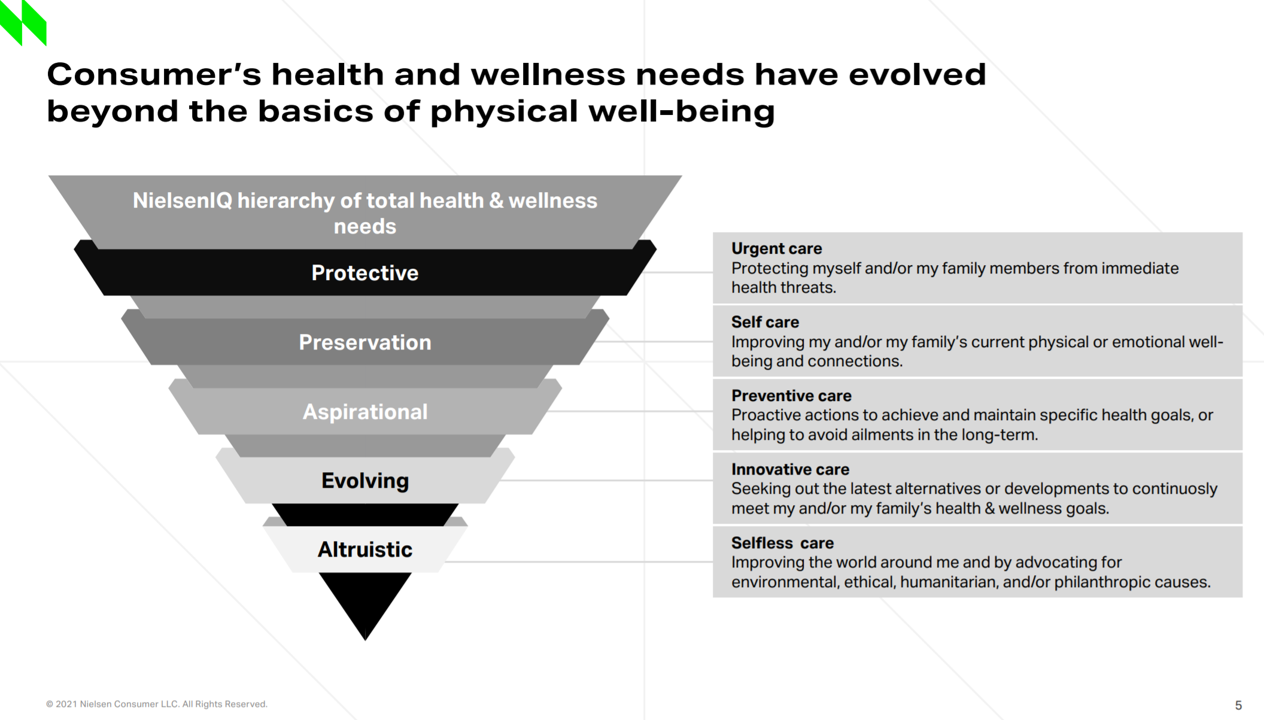


 Thanks to Feedspot for naming this blog, Health Populi, as a
Thanks to Feedspot for naming this blog, Health Populi, as a